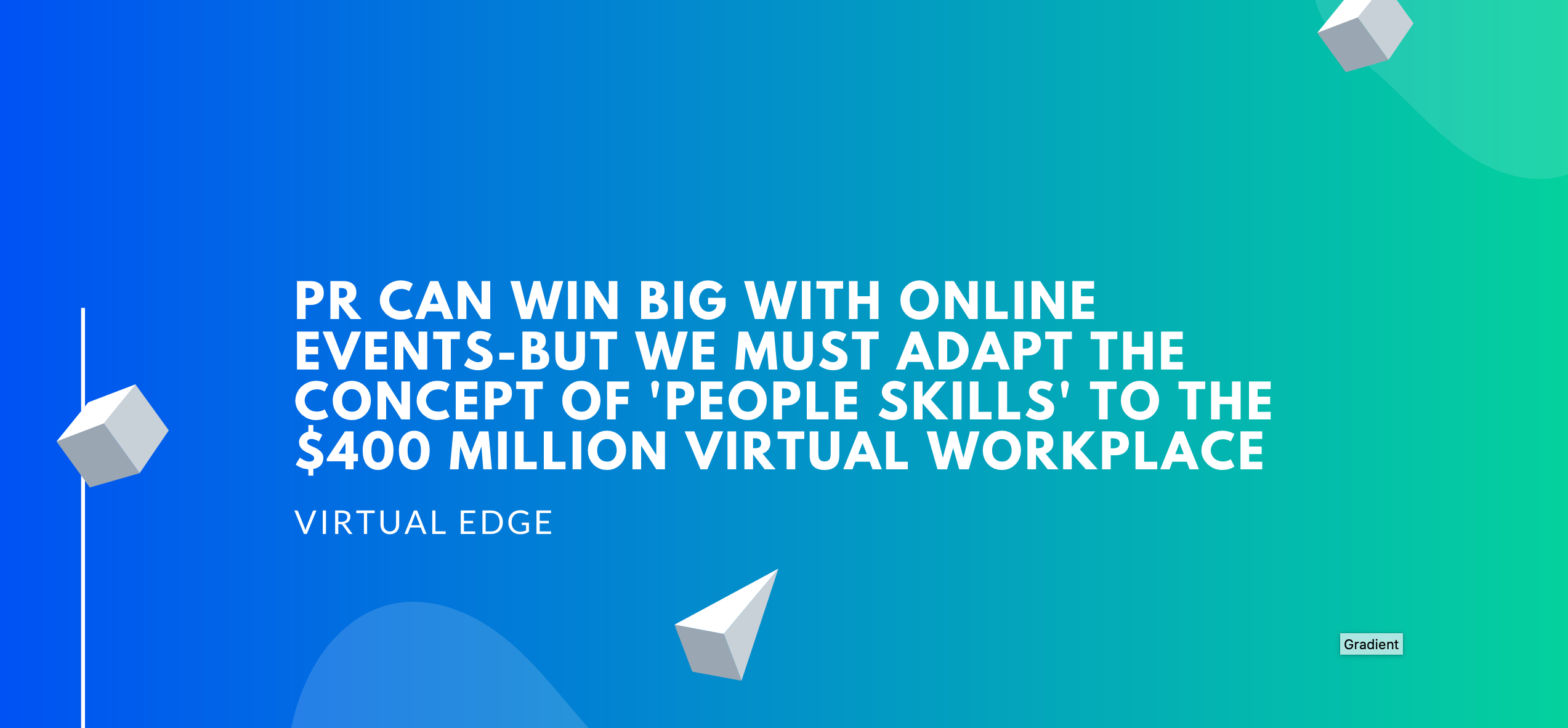Though it makes many of us bristle, “people skills” have long been associated with the public relations profession. How, then, do PR pros, whose effectiveness is often dependent on interpersonal and communication skills, adapt to an increasingly virtual workplace?
Whether we like it or not, webcasts and virtual events are widely regarded as the communications tools of our time. According to a Frost & Sullivan report, projected revenues for virtual events will reach $400 million by 2014. This growth makes sense, since few communications techniques can match virtual events in terms of audience reach, visual impact, brand and company image enhancement and the generation of highly qualified marketing and media relations leads. In addition, social networking is a natural extension of virtual events—and we’ve all seen the power of online communities.
The message to a “people person” is clear: It’s time to get an avatar and make connections in virtual environments.
Vocus, a provider of PR management software, recognizes that virtual events have become essential public relations tools and that PR professionals need to experience them to fully understand them. Earlier this year, Vocus offered an online version of its successful annual user conference, which focused on effectively leveraging social media. A pay-per-view event, the Vocus Virtual Conference provided access to valuable professional education programs featuring leading public relations experts. And while these sessions were pre-recorded, the actual speakers who presented the original content were available online during the virtual conference for live interactive chat sessions and virtual “networking breaks.”
As a pay-per-view virtual event that was an extension of a physical event, the Vocus Virtual Conference was the first of its kind. Because it focused on social media, it appealed to a broad range of public relations and marketing professionals. In addition, because it was virtual, Vocus reached a broader audience than could have been attracted with the physical conference alone.
The results were impressive, clearly indicating that PR professionals are ready to embrace new virtual communication techniques, for both their clients and employers and for their own professional development. Vocus has reported that with close to 700 participants (all willing to pay $129), attendance exceeded expectations. However, there was an added and unexpected benefit: the buzz that the event created. For example, while it might seem natural that a virtual conference on social media would spill over into the Twittersphere, the resulting activity was remarkable, as there were literally hundreds of tweets about the event. Vocus attributes this to both the uniqueness of the venue and the quality of the content.
Typical was this real-time message from an attendee: “Hotel ballrooms should be shakin’ in their shoes, because this virtual conf and interface is awesome! So long, flights and hotel!”
One of the speakers, Deirdre Breakenridge, a noted author and social media communications expert, provided positive feedback on her blog, PR 2.0 Strategies: “I think that the Vocus Virtual Conference is an example of social media learning at its best,” she wrote. “The conference was about leveraging social media, it was promoted through social media and the attendees were provided an interactive environment where they could network and collaborate together around a number of interesting topics.”
Breakenridge concluded that, if you’re going to have a social media conference, you have to do it the right way. “Everything should be about social media, from the topics and promotion to the interactive environment and the ways people participate.” She added that she was still discussing conference topics and answering questions long after the event ended. “Now, that’s the true value of social media. The conversations are only the beginning. Relationships are formed, and moving forward, there’s plenty of opportunity as a result.”
- The next step for these attendees is to take what they learned and experienced and apply these solutions to the communications challenges they face as PR professionals. Virtual events should be considered for:
- Presenting messages in an environment that reaches customers and influencers in an innovative way.
- Press and analyst briefings—to provide access to executive management or to facilitate interactive demos, for example.
- The announcement of significant new products and corporate news.
- Training and professional development.
- Employee and client meetings.
As professional communicators, PR pros need to master the new tools made possible by emerging technologies. The virtual event is one solution whose time has come—and recent market research confirms it. The workplace and the ways in which we interact are evolving, and virtual communication is being widely adopted. In fact, many people today actually prefer virtual interaction.
